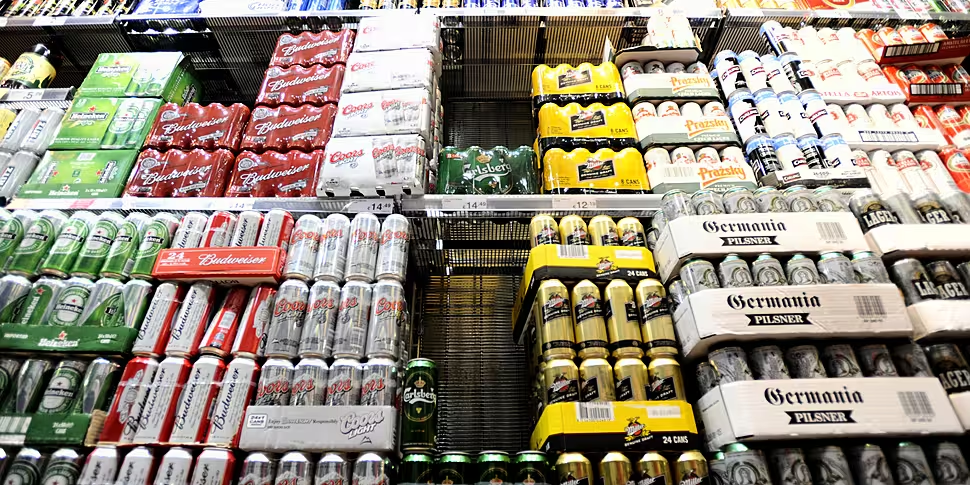A drinks representative group says the introduction of minimum pricing here could see a 38% difference in prices North of the border.
There are concerns minimum unit pricing (MUP) of alcohol could lead to a rush in cross-border shopping.
New measures being introduced here in the coming months will mean drink will be priced differently in Northern Ireland.
Minimum unit pricing is a 'floor price' beneath which alcohol cannot legally be sold, and is based on the amount of alcohol in a product.
Alcohol Action Ireland says the measure is about tackling the cheapest alcohol and reducing harm amongst the heaviest drinkers.
Patricia Callan is director of Drinks Ireland, which represents manufacturers and distributors.
She told Lunchtime Live there needs to be an all-island approach to this.
"When the Cabinet last made a decision on this, the existing Cabinet decision is to align with Northern Ireland in introducing that.
"And that was reaffirmed in the current Programme for Government.
"We have loads of economic data in terms of cross-border shopping: typically, pre-COVID, about 7% of total alcohol purchases already happened in the North.
"That's because of the excise differential - we have the second-highest excise in the EU here in the Republic - and obviously exchange rates would also amplify that."
Ms Callan said with the introduction of minimum pricing here, the price difference will increase from an average of 27% to as high as 38%.
"Therefore it's much more likely that you will see a cross-border shopping increase, and that will actually lose this Government about €94m in revenue in terms of taxation - without actually achieving any public health benefits.
"People are still consuming, they're just going North to buy the product".
She said the policy itself is not in dispute, but the timing of it is.
"It's not the policy per se that we're questioning, it's the timing," she said.
'People will buy more than they need'
CEO of the Convenience Stores and Newsagents Association, Vincent Jennings, said they support the measure - but not this way.
"I wouldn't want to be sought in any way that convenience store retailers are opposing the act.
"The act has gone through - the thing is, there is a caveat.
"When this came through... it was suggested, and very clearly, guarantees were made that this would be happening alongside the North of Ireland doing the same thing.
"The Minister himself had promised that, and then most recently... at the end of last year, the Minister said if we proceed with this policy unilaterally we risk undermining the effectiveness [of it].
"But all the promises that were made were on the basis of this running together.
"And there is a case to be made for a regulatory impact assessment... because every policy that this Government ever brings in, or any government ever brings in, should be at least considering all of the facts.
"If we're going to go unilaterally on this, then you have to make a good case for it.
"Because what's going to happen is more people will travel to the North, they will buy more than they need and then they will consume more than they will need".
Meanwhile a study on the impact of minimum unit pricing found the measure will not put off the majority of drinkers.
Research in 2016, led by Royal College of Surgeons in Ireland (RCSI), showed only 14% will feel its affects.
It found that the cheapest alcohol products are favoured by the heaviest drinkers, regardless of their income levels.
The RCSI and the Health Research Board examined the relationship between high-risk drinking, personal income, place of purchase and price paid for alcohol.
It conducted a national sample of 3,187 Irish adults.









